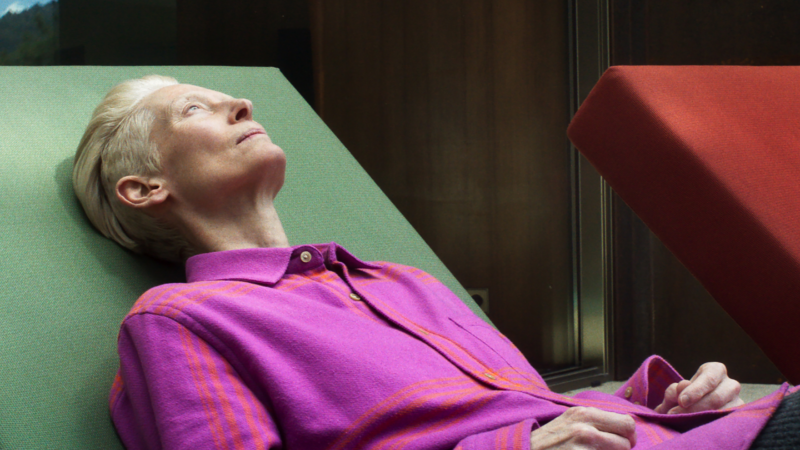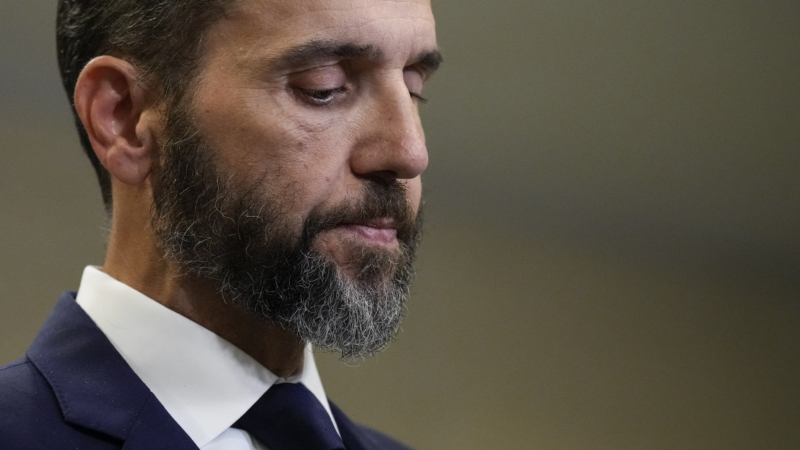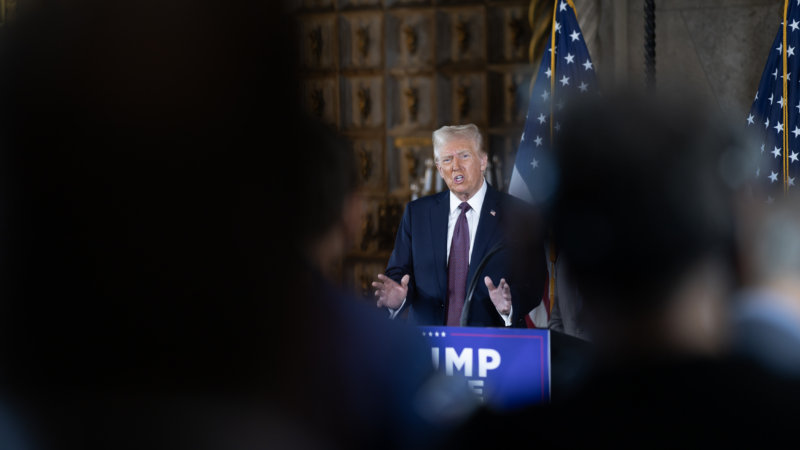The ‘magical’ advent calendar that’s as big as a town hall
Advent calendars have become big business in the U.S. these days.
Shoppers can easily spend upwards of $200 for calendars with samples of makeup and skincare products, or even gourmet cooking ingredients.
But if you are looking for a larger-than-life advent calendar, you better head to Germany, where the advent calendar, after all, originated.
Each December, the southwestern hamlet of Gegenbach turns its town hall into one giant advent calendar. Every evening, they raise the shade of another window to reveal a new picture behind it, just as the owner of an advent calendar unfolds a flap to procure a candy — or these days, a lipstick or a spice sachet.
“It’s quite spectacular because everything gets dark and then we have a spot on the window and then it’s like a little bit of a curtain that goes up,” said Michael Foell of Gegenbach’s tourism bureau. “Everyone is just watching with big eyes and mouths open.”

The art rotates each year. In the past the town has displayed reproductions of paintings by Marc Chagall and Andy Warhol. This year, Gegenbach is featuring the work of German illustrator Olaf Hajek.
Inspiration strikes
The tradition began in the 1990s. Gegenbach was primarily a summer destination at that time, and local businesses wanted to find a way to attract more visitors during the cold months. According to local lore, a few of the business owners gathered outside the town hall one night to discuss what to do. After a few glasses of wine, one of them said, “Oh, what: 24 windows. What can we do with that?”
It just so happens that standard advent calendars have 24 slots. (The Christian Advent season can however vary between 21 and 28 days depending on the year.)
Nowadays, between 100,000 and 220,000 people from around the world visit Gegenbach each winter to see the calendar — and patronize the Christmas market in the town center.
But even more important than buying a few tchotchkes, Foell says, is that visitors leave with the true spirit of the holidays.
“It’s a point where everyone comes together, where you meet friends, where you go with family. Everyone comes together. They celebrate together, and they have a good time together.”

A record 24 million people now get Obamacare health plans. Will it last under Trump?
Enrollment in Affordable Care Act health insurance plans has grown every year of the Biden administration, leading to a record high rate of people with insurance.
Tilda Swinton thinks about death and says you should, too
Swinton plays a woman dying of cancer in Pedro Almodóvar's The Room Next Door. "A life spent considering how we're going to spend our end is not wasted time," Swinton says.
Girl Scouts are retiring two cookie flavors (don’t worry, your Thin Mints are safe)
2025 will be the last time you can buy Girl Scout S'mores and Toast-Yay! cookies. They join the ranks of many other discontinued flavors — RIP Mango Cremes with Nutrifusion and cheesy Golden Yangles.
Here’s where things stand for several major landmarks in the Los Angeles fires
The fires raging across Los Angeles are putting some cultural institutions in danger.
Justice Department wants to release only part of its report on Trump cases
Prosecutors dropped the two criminal cases against Trump after he won the 2024 election, and the final report by Smith may be the last chance for prosecutors to explain their decisions.
Trump asks the Supreme Court to block his sentencing in hush money case
President-elect Donald Trump is scheduled to be sentenced on Jan. 10 in New York. His latest legal move to block sentencing comes after a New York appeals court rejected a similar appeal Tuesday.





